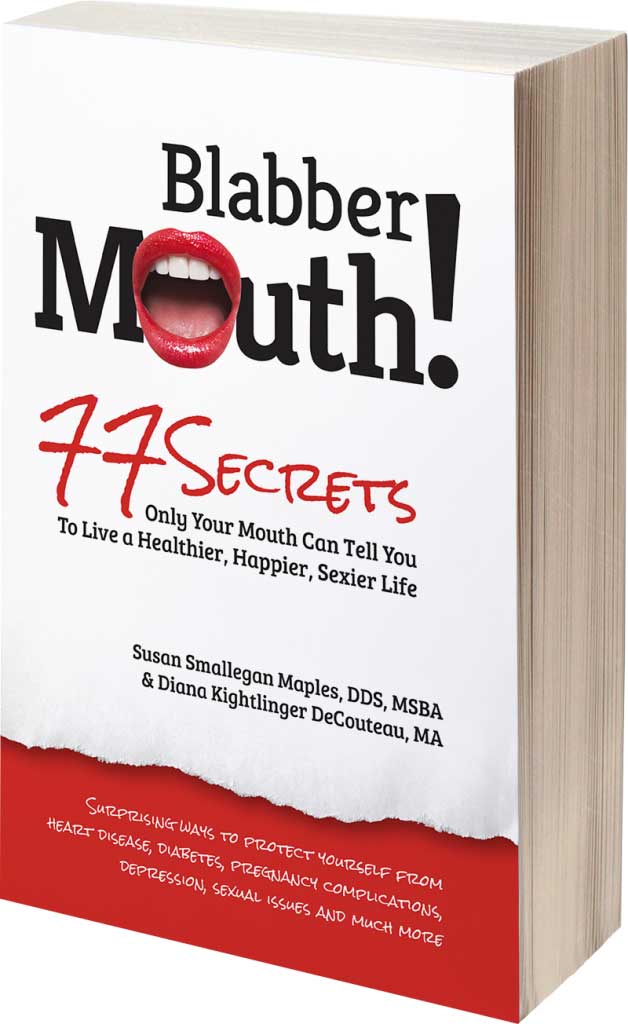Got your attention? Hope so! To continue our tribute to National Sleep Awareness Week, here’s a guest post from the authors of a recent book, SLEEP TO BE SEXY, SMART, AND SLIM: Get the Best Sleep of Your Life, Tonight and Every Night by Julie Bain (Health Director for Reader’s Digest) and Ellen Michaud, former editor-at-large for Prevention magazine and Mom Since 1978 (MS’78). They share some background on why we can’t sleep and share 8 secrets for moms to get more, better sleep! Enjoy! — Amy
Help for Sleepless Moms
Here’s how to get the housework done, give your children the attention they need, and help your kids get the sleep they need—so you can, too. By Ellen Michaud with Julie Bain
From Sleep to Be Sexy Smart and Slim
Mothers and Sleep
Moms don’t sleep. Not during pregnancy. Not after the kids are born. Not after they’re in school. And especially not after they start driving. In fact, a totally unscientific poll of mothers recently revealed that no mom sleeps until her kids are grown and out of the house. Part of the reason is that we’re good parents. We try to give our kids a clean home, clean clothes, and a modicum of attention.
In the hour before bedtime, 60 percent of us are still doing household chores, reveals a poll by the National Sleep Foundation, while 37 percent of us are doing things with our kids. A second reason that we’re not sleeping is that sometimes our kids are too wired to settle into sleep right away or perhaps it’s because they just haven’t learned how to get to sleep independently.
A third is that every once in a while, all kids have sleeping problems at night—nightmares, illness, wet beds, just to name a few. Unfortunately, for whatever reason, 47 percent of us have to handle those challenges alone. Whether it’s because of divorce, disinterest, or poor parenting, there’s no one else there but us to get up in the middle of the night to cuddle a miserable, frightened child. But we’re not the only ones who are losing sleep. So are our kids. Studies show that 40 percent of children report they don’t get enough sleep. And at least one survey reveals that 20 percent of teens fall asleep in school on a regular basis.24 percent of married women have given up sex—whether it’s because we’re so exhausted we prefer sleep or because we’re so irritated at our partner is anybody’s guess.
8 Sleep Secrets for Mothers
Here’s how to get the housework done, give your children the attention they need, and help your kids get the sleep they need—so you can, too.
1. LOWER YOUR EXPECTATIONS. “I think a lot of us are type-A working moms,” says Jodi Mindell, Ph.D., associate director of the Sleep Center at the Children’s Hospital of Philadelphia and author of Sleep Deprived No More: From Pregnancy to Early Motherhood. “We put a lot of pressure on ourselves. We think we need to be the perfect mom and never lose patience with our kids. We think we need to make sure the house always looks good and that we need to serve gourmet meals when people would be just as happy with spaghetti and meatballs.” But you don’t have to be the perfect parent, says Dr. Mindell. “Lower your expectations. You don’t have to be the perfect gourmet cook or have every holiday decoration. You don’t have to be the best housekeeper. You need balance—and part of that balance is in knowing that pizza with veggies or hot dogs with baked beans is fine.”
2. HAVE YOUNGER CHILDREN SLEEP INDEPENDENTLY. Sleeping with younger kids or lying down with them as they fall asleep is fine, says Dr. Mindell. But the problem is, if you lie down with your 3-year-old at bedtime, when she wakes up in the middle of the night, she’s going to need you to lie down with her again before she can fall back asleep. So if you want to keep your own sleep from being disrupted, you need to help her understand that she can get back to sleep on her own.There are many ways to help a child sleep independently, adds Dr. Mindell. One is the sleeping-bag trick. If your child wants to sleep with you, just put a sleeping bag on the floor and tell your child that that’s where he or she can stay. Then, night after night, gradually move the sleeping bag away from your bed toward the bedroom door, and then eventually down the hall to his or her own room. It can take a while, but sooner or later the child will gain the confidence to sleep independently. In the end everybody sleeps—and you may even regain your sex life.
3. GET TODDLERS AND PRESCHOOLERS TO BED BY 7:30 P.M. That gives them 30 minutes to fall asleep and a good 11 hours of sleep time. That, along with a nap or two, is all they need. And if you stick to that schedule, it will give you a few moments to unwind before bed yourself.
4. GET PRETEENS TO BED BY 8:30 P.M. That gives them 30 minutes to fall asleep and 10 hours to sleep by the time they have to get up at 7:00 A.M. If they need to get up earlier, they should go to bed earlier as well.
5. GET TEENS TO BED BY 9:00 P.M. Or so. Yeah, it’s a challenge. And they’re not just being difficult when they say, “But, Mom, I’m not sleepy!” Starting at puberty, the body’s biological clock shifts by about two hours. So although your 13-year-old may be able to go to bed at 9:00 P.M. and fall asleep, your 15-year-old probably can’t fall asleep until 11:00 P.M.Unfortunately, this—what scientists call delayed sleep phase—is why most teens seem sleepy all the time. And combined with the fact that the switch from middle school to high school during those years usually means they have to get to school even earlier than ever clearly spells out a recipe for trouble, says Dr. Mindell.A whopping 20 percent of teens report they fall asleep in school, and studies have found that teens who do not get enough sleep (see table on page 47) are at an increased risk for depression, rage, use of stimulants and alcohol, low grades, and automobile accidents. A study in North Carolina found, for example, that sleepy drivers under the age of 25 were responsible for more than 25 percent of all fall-asleep crashes in that state.Some enlightened schools are beginning to talk about starting the school day later so teens have a better chance of getting adequate sleep. Another way to handle the issue, says Dr. Mindell, is to use light therapy. Light enters the eyes, shoots down the optic nerve to the brain, tinkers with brain chemicals, and resets the body’s biological clock. To get that process started, simply expose your teen to as much sunlight as possible.Have them eat breakfast in a sunny part of the home, keep blinds and drapes open to allow as much sun into the home as possible, and don’t let your kids wear sunglasses to school. All this light will help reset their biological clock and help them fall asleep at an earlier hour.
6. ESTABLISH BEDTIME ROUTINES. Kids should always do three or four calming activities before bed, says Dr. Mindell, and they should be exactly the same activities every night. Bath, reading, prayer—whatever you choose, its daily repetition literally cues your child’s body that it’s time to sleep. One note: A National Sleep Foundation poll indicates that reading as a part of the bedtime routine is associated with kids falling asleep faster and sleeping better. And don’t forget your teen, adds Dr. Mindell. A routine is just as important for a 15-year-old as it is for a toddler.
7. GET THE KIDS TO HELP WITH HOUSEWORK. Start when they’re eight or nine. Do the dishes together, fold laundry together, count socks. Hand them a dust mop or broom. It frees you so that you can unwind in the hour before bed and thus sleep better. Tell your kids exactly that. It will send them the clear message that sleep is important.
8. GET TO BED BY 11:00 P.M. Let the dust bunnies go. Forget any laundry left on the floor. Start to practice your own bedtime routine at 10:00 P.M. and slip between the sheets at 11:00 P.M. You may feel so good the next morning that you’ll work with the kids to get yourself into bed even earlier. Maybe your bed partner will even lend a hand. And who knows? Maybe you’ll have the energy to make love to him in the morning.
Love the tips! Good luck getting more sleep! Everyone needs it – especially moms!







Oh how I wish I had read this back when my kids were young’uns!
And I love the title (should I worry about the fact I can relate to it? 🙂 ).
Barbara